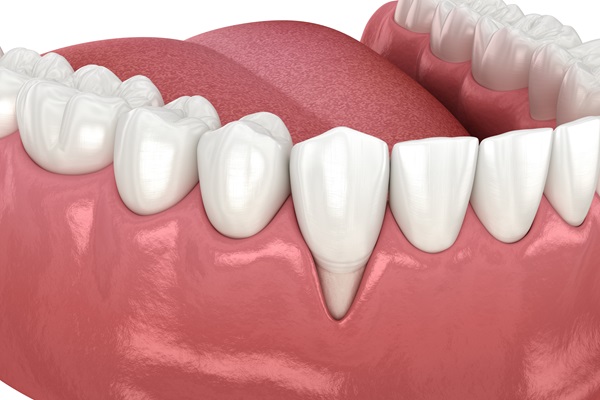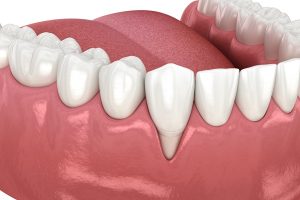
Gum recession is a common dental issue that can lead to sensitivity, discomfort, and even tooth loss if left untreated. At Dr. GO Smile, we believe that understanding the causes and treatments of gum recession can help patients make informed decisions about their dental health. Let’s dive into what causes gum recession and explore effective ways to treat and prevent it.
What is Gum Recession?
Gum recession occurs when the gum tissue surrounding the teeth gradually pulls back or wears away, exposing more of the tooth or even its root. This can create small gaps or “pockets” between the tooth and gum line, where bacteria can build up, leading to more significant oral health issues. Early detection and treatment are key to preventing further gum and bone loss.
Causes of Gum Recession
- Aggressive Brushing
Brushing too hard or using a hard-bristled toothbrush can wear away gum tissue over time. It’s important to use a soft-bristled brush and gentle, circular motions to avoid damaging the gums. - Periodontal Disease
Gum disease is one of the leading causes of gum recession. Bacterial infection can destroy gum tissue and the bone supporting your teeth, leading to recession if left untreated. Regular dental cleanings and proper oral hygiene can help prevent this. - Genetics
Some individuals are more prone to gum recession due to genetic factors, regardless of how well they take care of their teeth. If gum recession runs in your family, be proactive in maintaining oral health. - Poor Oral Hygiene
Insufficient brushing and flossing can lead to plaque and tartar buildup, which irritates and damages the gums. Regular cleanings and good hygiene are essential to prevent gum disease and recession. - Tobacco Use
Smoking and other tobacco products increase plaque buildup, which can lead to gum disease and recession. Quitting tobacco can have a significant positive impact on gum health. - Grinding and Clenching Teeth
Teeth grinding (bruxism) puts excess pressure on the gums and can lead to recession. Using a mouthguard at night can help reduce the impact on your gums.
Symptoms of Gum Recession
- Sensitivity to hot, cold, or sweet foods
- Visible roots or “longer-looking” teeth
- Bleeding or swollen gums
- Bad breath or a persistent bad taste in the mouth
Treatment Options for Gum Recession
- Scaling and Root Planing
For mild cases of gum recession caused by gum disease, deep cleaning treatments like scaling and root planing can remove bacteria and tartar from below the gum line, allowing the gums to reattach to the teeth. - Gum Grafting Surgery
In more severe cases, gum grafting surgery may be recommended. This involves taking tissue from another part of your mouth (or using donor tissue) and attaching it to the area affected by recession, covering exposed roots and restoring the gum line. - Pinhole Surgical Technique
This minimally invasive procedure is a newer option for treating gum recession. It involves creating small holes in the gum tissue and using specialized instruments to gently reposition the gums over exposed roots, without the need for stitches. - Lifestyle Changes
Reducing tobacco use, improving brushing techniques, and wearing a nightguard if you grind your teeth are all lifestyle changes that can help prevent further recession and promote gum health. - Regular Dental Visits
Routine dental cleanings and check-ups are essential for early detection and prevention of gum issues. Your dentist can recommend personalized solutions based on your unique oral health needs.
Preventing Gum Recession
Preventing gum recession starts with good oral hygiene and regular dental care. Use a soft-bristled toothbrush, avoid aggressive brushing, and floss daily to remove plaque buildup. If you’re concerned about gum recession, visit Dr. GO Smile for a consultation to protect your smile.
By understanding the causes, symptoms, and treatment options for gum recession, you can take control of your oral health and enjoy a healthy, confident smile. At Dr. GO Smile, we’re here to provide the care and support you need to maintain optimal gum and dental health.

